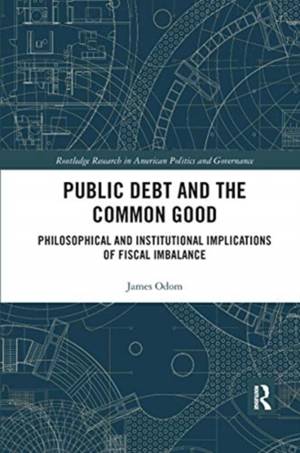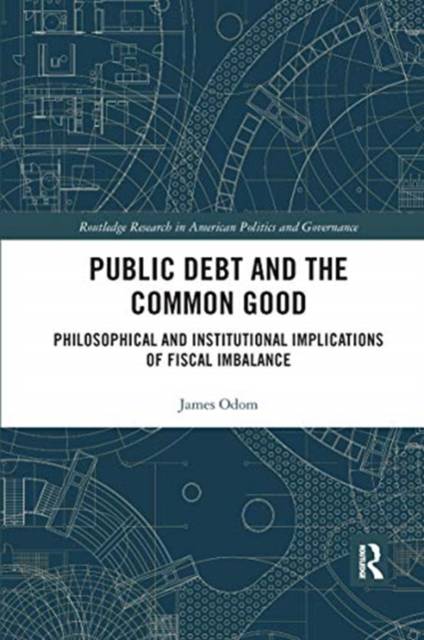
- Retrait gratuit dans votre magasin Club
- 7.000.000 titres dans notre catalogue
- Payer en toute sécurité
- Toujours un magasin près de chez vous
- Retrait gratuit dans votre magasin Club
- 7.000.0000 titres dans notre catalogue
- Payer en toute sécurité
- Toujours un magasin près de chez vous
Public Debt and the Common Good
Philosophical and Institutional Implications of Fiscal Imbalance
James OdomDescription
The American national debt stands at $20.49 trillion as of January 2018, or roughly $63,000 for every person in the United States. The national debt has grown six-fold in the past 25 years, and borrowing only has accelerated in recent administrations. What are the factors driving such unrestrained borrowing? Is American fiscal policy different now than in an earlier era? Is there a moral dimension to public debt and, if so, how can that dimension be measured?
Public Debt and the Common Good addresses these and other questions by looking to the fiscal policy of the American states. Drawing on classical themes and the longest quantitative review of state debt in the literature, James Odom expertly integrates institutional analysis with dimensions of culture to define the parameters of political freedom in a theoretically coherent way. In doing so, Odom argues that centralization and injustice, or the incapacity for the common good, can help explain state indebtedness.
Contributing to ongoing scholarly debates on public debt theory, this book will be of interest to students, scholars, and practitioners who work at the intersection of political philosophy and economics, as well as those who specialize in state public policy, state politics, and federalism more generally.
Spécifications
Parties prenantes
- Auteur(s) :
- Editeur:
Contenu
- Nombre de pages :
- 172
- Langue:
- Anglais
- Collection :
Caractéristiques
- EAN:
- 9780367666002
- Date de parution :
- 30-09-20
- Format:
- Livre broché
- Format numérique:
- Trade paperback (VS)
- Dimensions :
- 152 mm x 229 mm
- Poids :
- 339 g

Les avis
Nous publions uniquement les avis qui respectent les conditions requises. Consultez nos conditions pour les avis.






